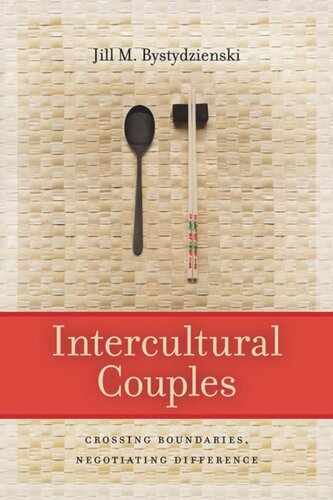

Most ebook files are in PDF format, so you can easily read them using various software such as Foxit Reader or directly on the Google Chrome browser.
Some ebook files are released by publishers in other formats such as .awz, .mobi, .epub, .fb2, etc. You may need to install specific software to read these formats on mobile/PC, such as Calibre.
Please read the tutorial at this link: https://ebookbell.com/faq
We offer FREE conversion to the popular formats you request; however, this may take some time. Therefore, right after payment, please email us, and we will try to provide the service as quickly as possible.
For some exceptional file formats or broken links (if any), please refrain from opening any disputes. Instead, email us first, and we will try to assist within a maximum of 6 hours.
EbookBell Team

5.0
108 reviewsDespite the growing presence of intercultural couples in the United States and worldwide, their stories often go untold. In Intercultural Couples, Jill Bystydzienski provides a rare and comprehensive understanding of the multidimensional experiences of intercultural couples, drawing mainly upon in-depth interviews with persons living in domestic partnerships—heterosexual and same-sex—representing a broad spectrum of ethnic, racial, religious, socioeconomic, and national backgrounds. In these relationships, each partner brings a different set of cultural experiences that may include gender expectations, ideas about appropriate relations with family members, childrearing, financial matters, and general lifestyle. Sometimes differences may be unrecognized or seen as minimal, yet some can become salient, forming the basis for conflict, enriching diversity, or both.
Bystydzienski’s findings show that, despite hurtful incidents from persons outside the couple partnerships, intercultural unions are a source of satisfaction for the partners, and are able to bridge divisions and reduce inequalities between persons of diverse backgrounds, providing a rich portrait of how these couples negotiate their identities as individuals and as couples in relation to the outside world.